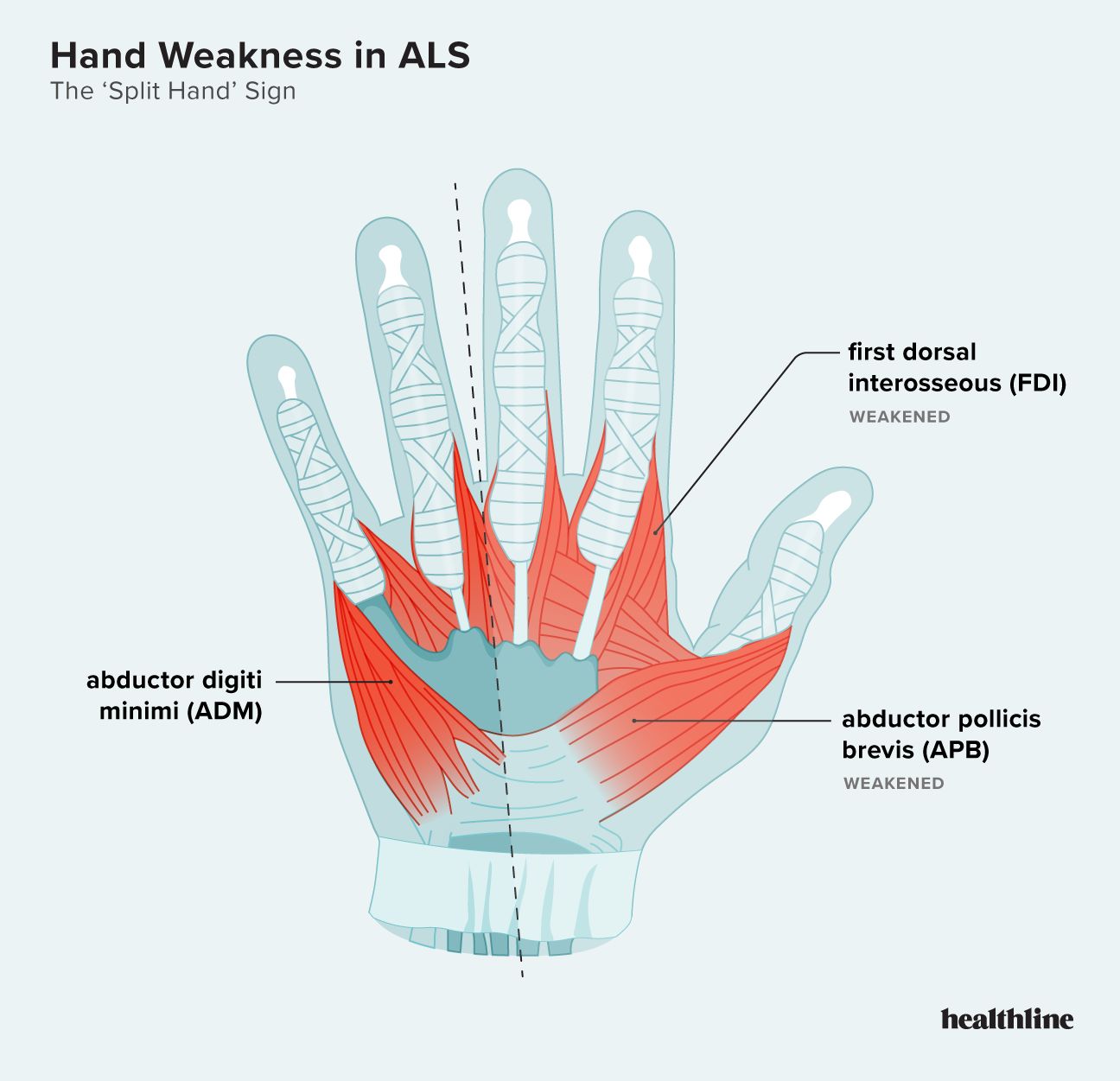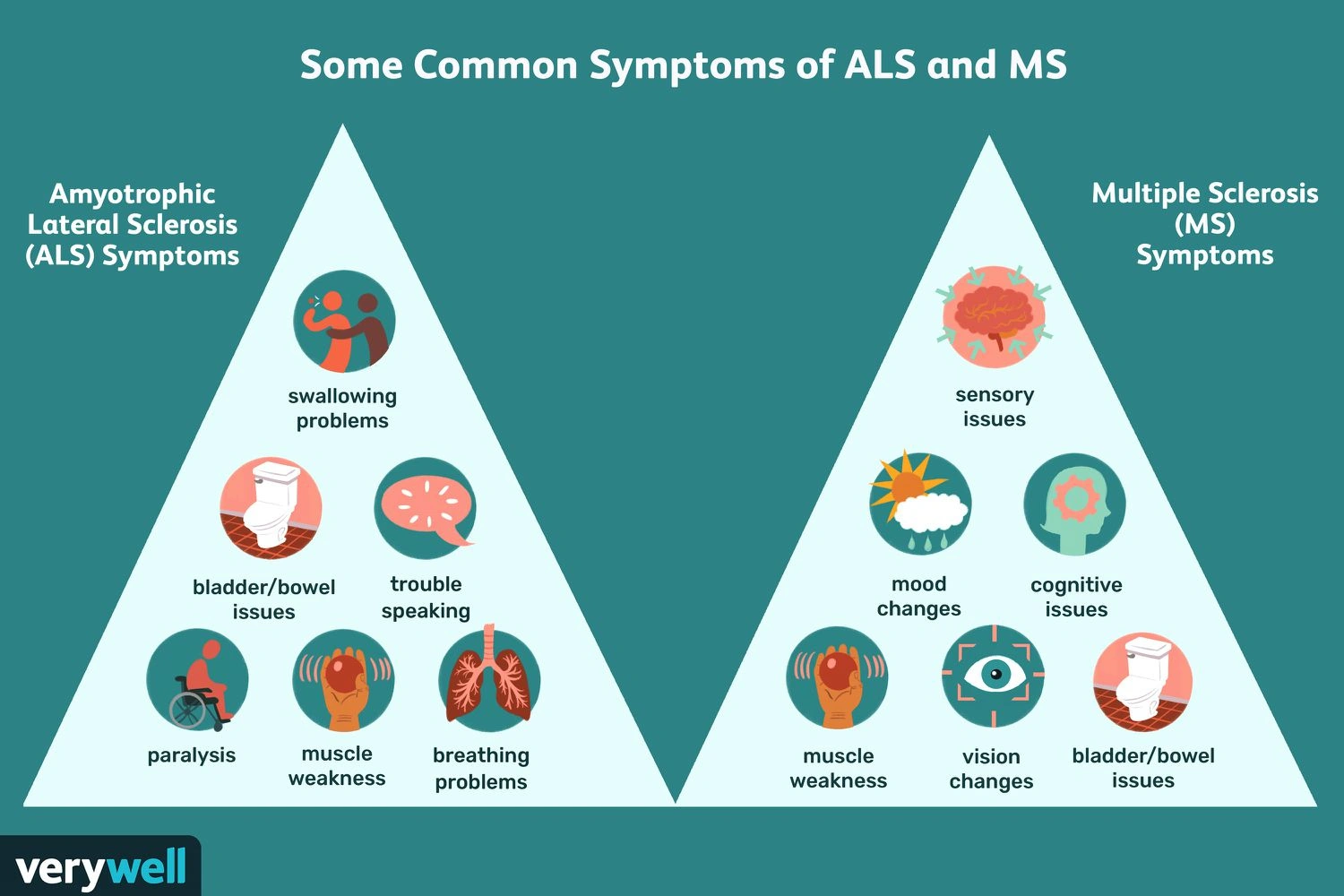Twitches Aren’t the Whole Story
Have you ever noticed a random muscle twitch, maybe in your eyelid or thigh, and immediately gone down a Google rabbit hole? If you’re like most of us who live in the age of WebMD, you’ve probably typed in your symptoms and—bam—seen Amyotrophic Lateral Sclerosis (ALS) pop up as a possibility. Cue panic, right?
Before you start imagining worst-case scenarios, let’s pause and take a breath together. You’re not alone. Most of us freak ourselves out by connecting all sorts of everyday aches or twitches with the scariest possible condition. The truth is, the signs you don’t have ALS are actually much more common than those pointing to ALS itself—and there’s legit science (plus a lot of real world stories) to back that up.
So, let’s walk through this. I’ll break it down, bust some myths, and maybe even share a small story or two to help shake off those nerves. Ready? Let’s start with the most common culprit in this spiral… harmless muscle twitches.

When Twitches Mean Nothing
Is It Just Stress?
Let’s get right into it—most muscle twitches are nothing to worry about. Seriously. Stress, too much caffeine, not enough sleep, dehydration… all common reasons for your muscles to have a tiny dance party. ALS? That’s rare.
I remember a time I had this persistent twitch in my right eyelid. Annoying. Distracting. Frankly, a little spooky. Did I panic? Absolutely. Did I have ALS? Nope—turned out it was just too much coffee and a couple nights of bad sleep.
How Can You Tell?
In ALS, muscle twitches aren’t solo—they come with real, noticeable weakness and loss of function. Like, you’d start dropping objects for no reason, or you physically can’t do what you used to (according to research on ALS symptoms).
Just to spell it out, check this little comparison:
| Symptom | Worry About ALS? | Common Reality |
|---|---|---|
| Random twitching (no weakness) | Nope | Stress, exercise, dehydration |
| Twitching + dropping objects | Maybe | See a doctor |
| Weakness that rapidly worsens | Talk to your doctor | Could be many things—not just ALS! |
Still anxious? Why not take the Do I have ALS quiz just to get some peace of mind.
Numbness and Tingling: Not an ALS Secret Sign
Wait, Is Tingling Even Part of ALS?
This is huge, so let’s say it again: ALS almost never causes numbness or that pins-and-needles feeling. Those are sensory symptoms, and ALS is a (scary, yes) motor neuron disease—so it affects your ability to move, not your ability to feel. If tingling or numbness are what’s bugging you, you can probably rule out ALS already (as explained here).
What’s more common? Pinched nerves from sleeping funky. Vitamin deficiencies. All the fun stuff that comes with typing too long at your laptop. My friend Sarah—her hands tingle when she’s stressed double-time at work. No ALS, just too many spreadsheets.
Think About This:
If your main symptoms are pins, needles, or going numb, you’re much more likely looking at something fixable. ALS is almost always about weakness and wasting, not weird skin sensations.
And if you’re still worried, it’s a great time to check the 5 reasons you DON’T have ALS. It breaks this whole mix-up down in plain language.
Your Strength Is Rock Solid?
If You Can Do the Things You Always Did…
Here’s another set of signs you don’t have ALS: your muscles are keeping up with your everyday life. You get through a workout. You open jars, pick up your kid, or type this super long email to your boss—no big drop-off in strength or function?
ALS doesn’t just happen overnight—it sneaks in, slow and relentless. If you’re kind of tired but not weaker, or if your strength is holding steady, that’s not how ALS acts (according to ALS specialists).

A Quick At-Home Test
Try this: Squeeze a stress ball. Open a new pickle jar (classic). Carry your grocery bags up the stairs. Still got it? You’re probably doing great.
Fun story alert: One reader, Jill, was scared about her legs feeling like lead after workouts. Turned out, she’d just started spinning class for the first time… and, surprise, muscles take a while to catch up. Classic case of too much exercise, not ALS.
Symptoms Stay the Same (or Disappear)?
ALS Is a One-Way Street
One of the sneakier signs you don’t have ALS? Your symptoms aren’t getting worse. In ALS, stuff just keeps progressing—weakness, slurred speech, dropping things, over months and years, never letting up (as noted by ALS Association).
If your annoying symptom—maybe cramps, or stiffness—vanishes after a while, or varies day-to-day? That’s not how ALS rolls. Pain, by the way? Not typical in ALS either, especially early on. If you are dealing with joint aches, sharp pains, or muscle soreness, that’s way more likely to be from a wonky mattress, exercise, arthritis, or maybe just getting older.
Could anxiety be the real villain here? You wouldn’t believe how often worry brings on a whole circus of body sensations. Anxious about ALS? You’re far from alone. Many people starting the Do I have ALS quiz share those same fears.
Senses Not Affected? Another Green Flag
Seeing, Hearing, Tasting — All Fine?
ALS is… very focused. It goes after the nerves that control muscle movement but doesn’t mess with your ability to see, hear, or taste. Most folks with ALS can still feel, see, and sense the world exactly as before (as Johns Hopkins outlines).
If you’re still savoring your coffee, hearing birds outside your window, and feeling the softness of your shirt, things are looking very much on your side. ALS doesn’t bring in weird, sudden vision loss or odd skin feelings. That’s pretty clear-cut for doctors, too.
Symptoms That Don’t Point to ALS (But Still Scare Us!)
Pain or Joint Creaks? Probably Not ALS
Weird but true: ALS doesn’t usually bring pain. All those achy, twingey, burning feelings in your joints or along your back? That’s more of an overuse injury, menopause side effect, even just being human. But ALS? It skips right past pain, especially in the early going (physical therapy specialists confirm this).
I once had a client who was having brutal hand aches and stiffness. Panic-mode… until her doctor diagnosed carpal tunnel. A wrist brace and some rest, and she was back to her old self—ALS never factored in.
Joint pain alone isn’t a typical sign you don’t have ALS—but if it’s there without other classic symptoms, the odds are stacked in your favor.
Other Conditions, Same Symptoms
Why So Much Confusion?
This is the tricky bit—the symptoms that start the ALS worry often match with a whole bunch of safer, less-scary stuff. Your jaw’s tight? You typed too long. Legs feel weird? Maybe you’ve been sitting for hours or had a tough gym day. Even things like medications, mild MS, Vitamin D deficiency, or benign fasciculation syndrome fool anxious people (trust me, I’m one of them sometimes!).
And here’s something wild: according to studies, ALS is misdiagnosed all the time. Nearly 40% of people are first told it’s something else, and up to 15% are told they have ALS, when it’s not (see the ALS misdiagnosis rates here).
This is why a true ALS diagnosis usually comes only after a careful process—loads of tests, scans, nerve conduction checks, and sometimes a second opinion. It’s hard for doctors, let alone us armchair Googlers!

Lots of people waste months worrying before a doctor assures them, “Nope, your signs you don’t have ALS are pretty clear.” For even more peace of mind, check out 5 reasons you DON’T have ALS. You’ll realize you’re in great company.
What Should You Do Now?
Take a Deep Breath…
If you’ve spotted these signs you don’t have ALS—no ongoing weakness, no worsening symptoms, strength and senses holding up, pain instead of muscle loss, symptoms that come and go—you’re in really good shape, literally and figuratively.
Is it still spinning in your mind? That’s normal. Here’s my two cents: don’t let Dr. Google (or Reddit doomscrolling) be the end of your health story. Book an appointment with your healthcare provider and get the real answers. Most of the time, you’ll walk out relieved and more in-tune with your own body. While you wait, try the Do I have ALS quiz—seriously, it’s like a free, quick therapy session for your peace of mind.
And if you need more snacks for your overthinking brain, the 5 reasons you DON’T have ALS guide is packed with facts and relatable examples, just like this one. You’re not alone in this—most of us are just regular folks navigating quirky, noisy bodies, not ticking time bombs for a rare disease.
You’ve Got This (For Real)
Here’s the bottom line: your body is talking to you, not screaming. Sure, aches, twitches, and tingles are annoying—but most of the time, they’re just the aftermath of modern life. So next time your mind jumps to ALS, remember: you know the real signs to look for, and you know what’s not worth panicking over.
Advocate for your peace of mind, not just your health. Get curious, not fearful, about your symptoms. And treat yourself like you’d treat a friend—maybe even pour yourself a cup of tea, take a deep breath, and remember how many times your body’s felt weird and bounced back.
Worried? Reach out. Still have questions? You’ve got tools now, from the Do I have ALS quiz to real, relatable stories in the 5 reasons you DON’T have ALS post. Step one is just choosing reassurance over worry, one fact (and probably one sigh of relief) at a time. You’re doing better than you think. Promise.


















Leave a Reply
You must be logged in to post a comment.